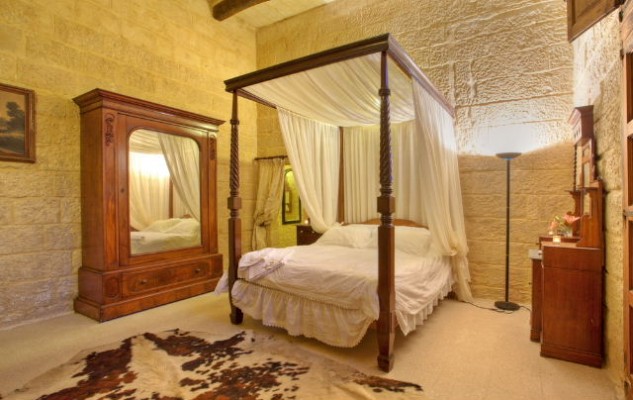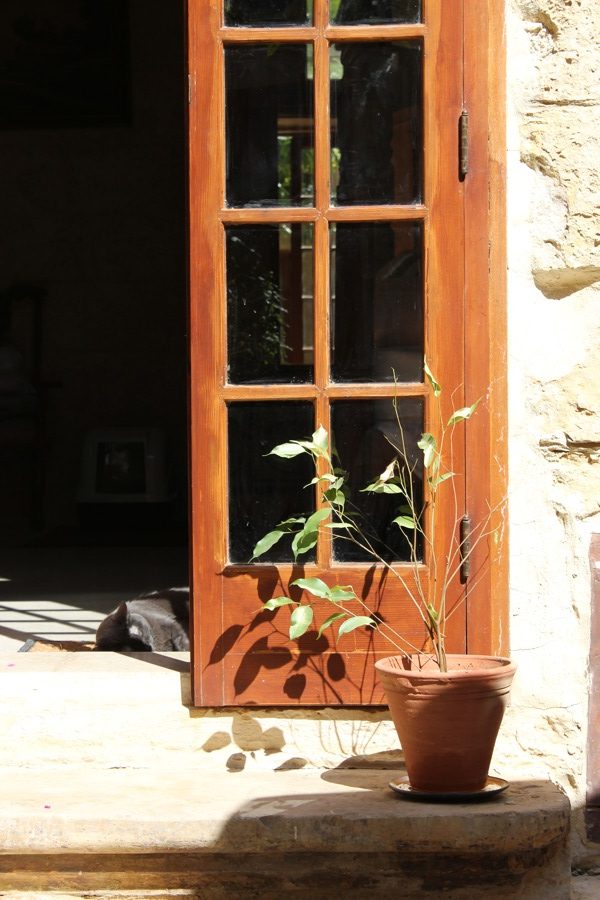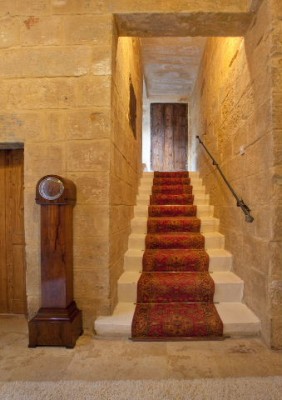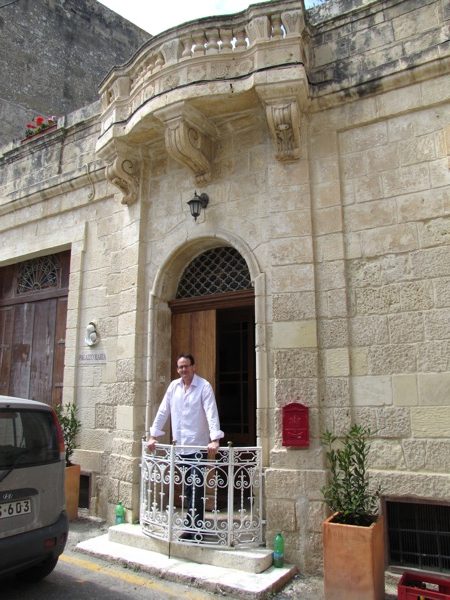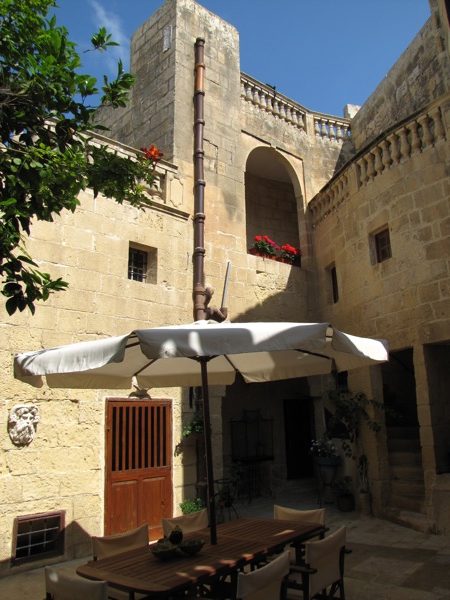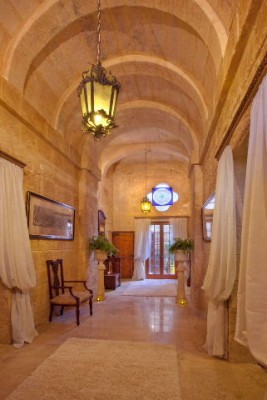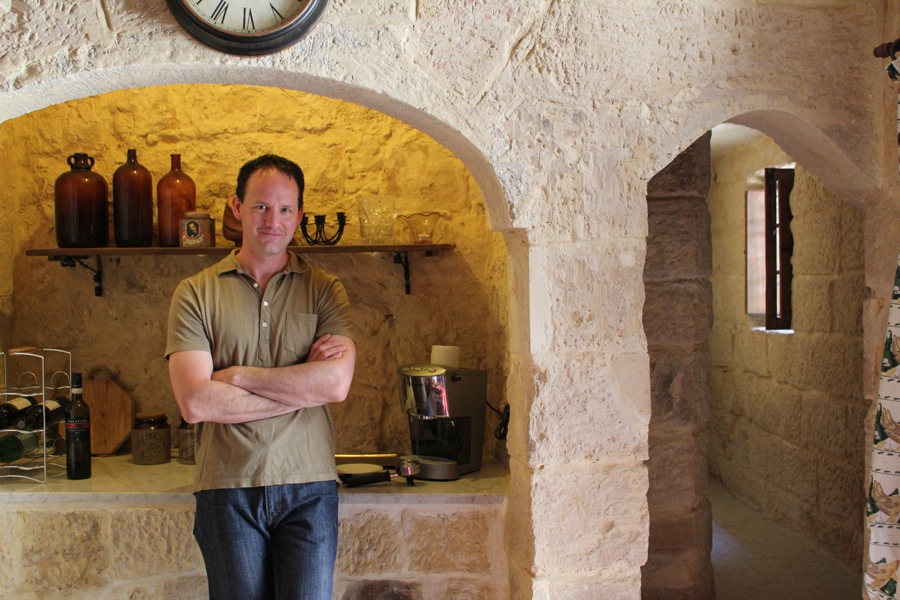
For several years I lived a secluded life on the island of Malta.
The house we took was a sprawling palazzo where the walls had a chalky tang, as yellow as aged cheese. It was the first thing I noticed when I walked in the door, and I noticed it again every time I returned from a trip. It was the dry dusty scent of time. Time passed slowly, and in silence.
An old house like that has a spirit or a soul. During those first few nights, locked in the impenetrable darkness of the massive bedroom behind a wooden door, I felt that space out there all around me. It didn’t feel hostile, but it didn’t yet feel warm.
That first week I went from room to room — systematically, two rooms a day — and polished the wood: every stick of furniture and the inside of every cabinet. I got to know each room intimately as I put order into chaos and organized the unknown. I discovered its secret corners. I found forgotten things in dark cabinets, items left behind by others who had come before me.
And by the time I finished that task, I felt that the house accepted me. It sheltered and trusted me, and even when I stayed alone in that vast sprawling place, even late at night long after my cat was gone, the house never felt hostile or hollow or frightening. I like to think that we understood each other, that house and I.
“Why would you rent such a thing?” friends asked me. “What will you do with all that space?”
An eight bedroom palazzo is a very large place for two people and a cat. If I was up in my study and had forgotten something in the bedroom, it would have been closer to walk across the street and borrow it from a neighbour than walk back to the bedroom to search for it there.

Part of me expected a steady stream of visitors. Bookish friends who would fly down for a while to join us in late nights of Durrellian conversation, leaving the courtyard scattered with glasses, and fallen bottles that we would clean up in the harsh hangover light of afternoon. But Malta was too obscure and too far off normal travel routes to be convenient. No one came.

The truth is, I rented it because it sounded like such a ridiculous thing to do.
I was searching for an old house. Something to connect me with the island’s past, in a village rather than the expat-filled seaside towns then in fashion. I’d spent months sifting through online listings, creating elaborate short lists and deleting ads each time an agent told me that, no, that place isn’t available, wasn’t ever available really, it was just there as bait.
I don’t know why this one caught my eye. When the agent said, “It’s a small palazzo,” I was hooked. The word “palazzo” just sounded so pretentious. The best part was, it didn’t cost much more than what we were paying to rent a house in Southern Ontario.
Such a vast house couldn’t help but contain rooms we rarely ventured into. By the time we went to Malta, I had already made up my mind.
The Palazzo Marija was a place of mystery, twisted hallways, alcoves, and hidden storage spaces. There were signs of doorways which had been sealed off, and traces of walls that had gone up and then come down.
I sensed that the house had its own inner life, its own areas of memory that were sometimes walled off, perhaps because they were too painful to look at. So many lives began and ended there, so many people came and went. Our time of residence was such a short span of its history.
An old Maltese house huddles around itself, turning its back on the street. External windows are narrow and barred, and only the top floor provides a view of the life outside.
The courtyard was a well of silence at its centre; all our rooms faced onto it with tall French doors. Sun filtered through the leaves of the orange tree and lit the bougainvillea that climbed the tower wall and burst into bloom. It even lent a friendly shadow to the dark stone steps that led to subterranean worlds in two separate cellars.
I liked to sit there with my coffee and a book, and with legs stretched out in a patch of gentle morning light. It was also the place to lie naked in the afternoon sun, because the courtyard was private and no one’s roof overlooked it. But even if they did, we didn’t have any neighbours. The homes adjacent to ours sat empty, as so many houses did in the village core.
We could never completely block out the noise of the street in Malta, but to step through our heavy wooden door was to step into another world.
The darkness of the hallway welcomed me with a slight temperature drop, and the silence of my cat reminded me of peace, contentment, and the joy of sitting quietly with someone you care about.
I think about it still, you know. Sometimes when I’m lying awake at night, I open the front door in my mind, and I walk through that grand hallway and wander its rooms like a ghost.
I do this because I left a part of my self behind there.
